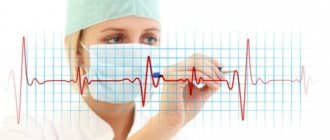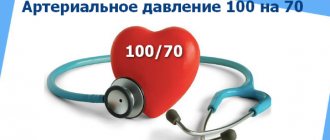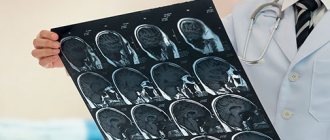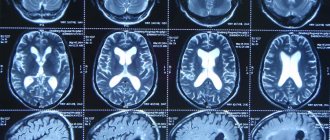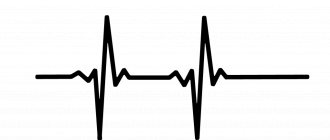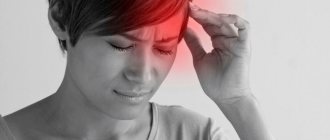Answered by Professor of the Department of Hospital Therapy, Russian National Research Medical University named after. Pirogova Alexander Karabinenko:
- Headaches are more severe and most common in people between 25 and 45 years old - during the period of maximum performance. The most common is tension headache, which occurs periodically in 45% of people. As a rule, in this case, everyone is treated independently. But patients with migraines make up 14% of the population, of which every second consults a doctor. Less than 1% of the population suffers from cluster headaches, but all of them are registered with a neurologist. These pains are so strong that they are also called suicidal, and a person is not able to cope with them on his own. Other types of headaches accompany certain diseases and conditions, therefore they arise periodically and disappear after the disappearance of the underlying disease. Here's how to tell what your problem is based on the nature of your headache.
Article on the topic Under Voltage. How to cope with stress
Causes of headaches with normal blood pressure
If after measurement it turns out that the pressure is normal, but the head hurts, the symptom indicates various conditions and diseases. Often the pain goes away on its own after proper rest. If they occur frequently or are characterized by high intensity, they may be the first sign of dangerous diseases and require timely treatment.
Tension headaches
One common cause is tension headaches. They are symmetrical, begin in the frontal or temporal region, and then spread to the entire surface of the head. The pain is intense, pressing, and is sharply accompanied by additional symptoms such as nausea and increased sensitivity to light. Their reasons are:
- vascular spasms, as a result of which blood flows to the brain in limited volumes;
- tension in the muscles of the cervical spine, which also block the movement of blood;
- insufficient mobility of the neck and head during the day.
Tension headaches are often caused by stress, insomnia, and disruption of the daily routine. Antispasmodics, as well as proper rest, massage and gymnastics are recommended as treatment.
Infectious diseases
A common cause of headaches with normal blood pressure is viral diseases. During the cold season and in the off-season, there is a decrease in immunity, so outbreaks of ARVI and influenza often occur. At the initial stage, these diseases can manifest themselves as headaches, then characteristic symptoms increase:
- weakness, deterioration of health;
- increased body temperature;
- sore throat, cough, runny nose, difficulty breathing.
The main treatment method for viral diseases remains bed rest and drinking plenty of fluids. Additionally, vitamins, antiviral and symptomatic drugs are prescribed. Antibiotics may be required to prevent bacterial infection.
Allergy
If you have a constant headache, but your blood pressure is normal and other symptoms do not appear, this may be a symptom of an allergy. It is an increased sensitivity of the immune system to certain agents that normally do not cause rejection. Proteins that come from outside activate the immune system, and the body begins to fight them. This process is often manifested by a deterioration in health, headache, and swelling of the mucous membranes. Allergens can be foods, plant pollen, household dust, animal hair, and various chemicals. To eliminate symptoms, it is recommended to limit contact with confirmed allergens. If this is not possible, the patient must take antihistamines.
Diseases of the cervical spine
The cervical spine contains nerves and vessels that lead to the brain. Various anomalies of its structure, acute and chronic diseases cause disruption of the blood supply and innervation of the head, which is accompanied by intense pain. If your blood pressure is normal and your head hurts, you should undergo a cervical spine diagnosis to determine the following diseases:
- osteochondrosis is a chronic disease in which there is a decrease in strength, and then deformation of intervertebral cartilage;
- curvature of the cervical spine;
- protrusion and herniation of intervertebral discs;
- spondylosis – pathological immobility, fusion of adjacent vertebrae due to injuries and chronic diseases.
Diseases of the cervical spine require urgent treatment as they can progress with age. Tissues become less durable and elastic, inflammatory and degenerative processes worsen. However, proper treatment will stop the disease and prevent its further development.
Vascular diseases
Atherosclerosis is a dangerous chronic disease of the arteries. It is associated with impaired metabolism of fats, proteins and carbohydrates. Cholesterol and some fractions of lipoproteins accumulate in the blood. These compounds permeate the walls of blood vessels and are deposited on their inner surface, subsequently forming plaques. They interfere with the normal flow of blood through the arteries, so certain areas of the brain may experience chronic ischemia - oxygen starvation.
Typical symptoms of atherosclerosis depend on the site in which it develops. If it affects the vessels of the neck and head, the patient is bothered by constant headache, weakness and dizziness, hearing and vision impairment. Blood pressure indicators remain within normal limits. To treat atherosclerosis, a special diet and medications are prescribed that help eliminate excess cholesterol and harmful lipoproteins. Surgery may be required to remove large plaques that are dangerous.
Other reasons
Headaches can develop as a reaction of the body to any internal or external stimuli. At home, it is difficult to determine its cause unless other characteristic symptoms occur. Based on the results of the examination, it will be possible to understand how dangerous it is and choose the appropriate treatment.
There are several reasons why you have a headache if your blood pressure is normal:
- Intoxication is the accumulation of poisons and toxins in the blood and internal organs, including brain tissue. Poisoning can be caused by poor-quality food, medicines, toxic fumes from chemicals, animal and insect bites. Antidotes are used for treatment; if they are not available, gastric lavage, drip administration of electrolyte solutions and other detoxification methods are prescribed.
- Migraine is a chronic disease that manifests itself as headache attacks. Its exact cause has not been established, but a relationship with vascular disorders and hereditary predisposition has been proven. Before headache attacks, patients note a complex of characteristic symptoms, which includes dizziness, hearing and vision impairment, short-term memory loss, and loss of motor coordination.
- The consequences of injuries can manifest themselves even after many years. Traumatic brain injuries, including concussions and contusions, are accompanied by intense headaches. In the future, they worsen after physical and mental stress, in response to changes in atmospheric pressure and other factors.
Headaches with normal blood pressure often occur when work and rest schedules are disrupted. Stress, tension, insomnia, and night shift work lead to general fatigue and depletion of energy reserves. Doctors at the Clinical Brain Institute recommend timely prevention of diseases, normalizing your daily routine, and avoiding stressful situations.
Migraine
Migraine is the most common type of headache.
It most often occurs in women from the onset of puberty (from 11-13 years) to 35 years. Migraine can be simple or with an aura. It can occur in the temple, crown, back of the head, and forehead. The cause of the disease is a hereditary disorder of vasomotor regulation of arteries located outside and inside the cranium. With migraines, headaches occur in the form of attacks. They bother you at varying frequencies - from once a week to once a year. The attack lasts from several hours to 3 days. Usually the pain is throbbing and covers half of the head. It often occurs after physical activity, stress, lack of sleep or too much sleep, or eating certain foods. A migraine attack is accompanied by nausea and vomiting, intolerance to bright light, noise, and strong odors. Sometimes the headache is very severe and lasts for several days - this condition is called status migraine. According to statistics, migraine occurs in 2% of people.
Neurologists believe that a migraine attack develops under the influence of the following provoking factors:
- Chronic stress;
- Overwork;
- Intense mental work;
- Hormonal disorders.
Often the cause of migraine is a family history.
Diagnostic methods
It is important to determine exactly why a headache occurs with normal blood pressure. It is impossible to conduct an examination at home. To accurately understand the cause of deterioration in well-being, additional techniques are prescribed:
- clinical and biochemical blood tests to assess the functioning of internal organs and the immune system, as well as additional studies to determine the level of hormones and microelements;
- examination of blood vessels using ultrasound with the addition of a contrast agent (Dopplerography);
- MRI of the brain is a method for detecting tumors, hematomas, areas of ischemia and other pathologies;
- examination of the cervical spine using radiography and MRI.
Diagnosis of headaches at the Clinical Brain Institute is fast and accurate. This is possible thanks to modern equipment, which allows you to get the most informative results in the shortest possible time.
Sources
- Joswig H., Abdallat M., Karapetyan V., MacDougall KW., Cooper PE., Parrent AG. Long-term Experience with Occipital and Supraorbital Nerve Stimulation for the Various Headache Disorders—a Retrospective Institutional Case Series of 96 Patients. // World Neurosurg - 2021 - Vol - NNULL - p.; PMID:33905904
- Kjeldsberg M., Tschudi-Madsen H., Mdala I., Bruusgaard D., Natvig B. Patients in general practice share a common pattern of symptoms that is partly independent of the diagnosis. // Scand J Prim Health Care - 2021 - Vol - NNULL - p.1-10; PMID:33905284
- Holla VV., Gohel AB., Kartik N., Netravathi M. Acute Necrotizing Encephalopathy as a Complication of Chikungunya Infection. // Neurol India - 2021 - Vol69 - N2 - p.490-492; PMID:33904484
- Murthy JMK., Challa S., Parida S., Murthy TVRK., Basha Paspala SA. Primary Angiitis of Central Nervous System-Tumor-Like Mass Lesions: Report of Six Biopsy Confirmed Cases. // Neurol India - 2021 - Vol69 - N2 - p.451-456; PMID:33904474
- Doddamani RS., Meena R., Sawarkar D., Singh P., Agrawal D., Singh M., Chandra PS. Robot-guided Ventriculoperitoneal Shunt in Slit-like Ventricles. // Neurol India - 2021 - Vol69 - N2 - p.446-450; PMID:33904473
- Srinivasa R., Chandrakiran C., Luckose R. Bilateral Posterior Nasoseptal Flap - Double Breasting Technique. // Neurol India - 2021 - Vol69 - N2 - p.307-310; PMID:33904440
- Dhiman V., Menon GR., Kaur S., Mishra A., John D., Rao Vishnu MV., Tiwari RR., Dhaliwal RS. A Systematic Review and Meta-analysis of Prevalence of Epilepsy, Dementia, Headache, and Parkinson Disease in India. // Neurol India - 2021 - Vol69 - N2 - p.294-301; PMID:33904437
- Pillutla V., Patel A., Koneru S., Ng KK., Ng MK. A Case Report of Severe Hyponatremia Secondary to Coronavirus Disease 2021 Viral Pneumonia. // Cureus - 2021 - Vol13 - N3 - p.e14077; PMID:33903839
- Jolobe OMP. The differential diagnosis of the association of headache and ST segment elevation. // Am J Emerg Med - 2021 - Vol - NNULL - p.; PMID:33902959
- Huang J., Wang L. Elderly Man With Persistent Headache. // Ann Emerg Med - 2021 - Vol77 - N5 - p.e103-e104; PMID:33902840
Headache treatment
Headache with normal pressure also requires timely treatment. The regimen is prescribed individually, based on the results of a complete examination. It may include the following steps:
- painkillers - a first aid method for headaches, often used at home;
- antispasmodics - prescribed to relax blood vessels and relieve spasms;
- anti-inflammatory drugs in the form of tablets or injections - necessary for the treatment of diseases of the cervical spine;
- a set of measures to relieve intoxication: the use of antidotes (antidotes), drip infusion of electrolyte solutions;
- means to improve brain function;
- additional techniques: neck and head massage, therapeutic exercises.
At the Clinical Brain Institute, we prescribe only those drugs that are truly necessary to eliminate the cause or symptoms of headaches. The ability to conduct a full diagnosis allows you to select the most effective treatment methods. Doctors with many years of experience specialize in the treatment of diseases that manifest themselves as headaches and normal blood pressure.
Types of dizziness
If a patient consults a doctor with such a complaint, it is not always a case of true (vestibular) dizziness. But since most people mention this particular word, it has also entered medical terminology. There are 4 types of dizziness, which differ in origin and symptoms. Out of 100 people who came to the neurologist, the doctor states:
- systemic dizziness – 60 patients;
- impaired coordination – 15 patients;
- presyncope – 15 patients;
- “fog” in the head and blurred vision – 10 patients.
Three of the four symptom groups are not actually dizziness. This is the result of not only neurological, but also vascular, ophthalmological, orthopedic, and mental diseases. Certain types of dizziness are observed with migraine, cardiac arrhythmia, arterial hypertension, osteochondrosis, glaucoma, anxiety disorders, multiple sclerosis and many other diseases.
Prevention methods
Headaches are often not associated with diseases, but appear as a result of a violation of the regime, poor nutrition, and a sedentary lifestyle. They are easy to prevent at home. To do this, it is enough to eat healthy foods rich in vitamins and microelements and avoid stress. It is also important to normalize your work and rest schedule, and spend time in the fresh air.
Doctors at the Clinical Institute of the Brain warn that if a headache does not go away at home even after following all the recommendations, you must contact them in a timely manner for a full examination and a treatment regimen.
